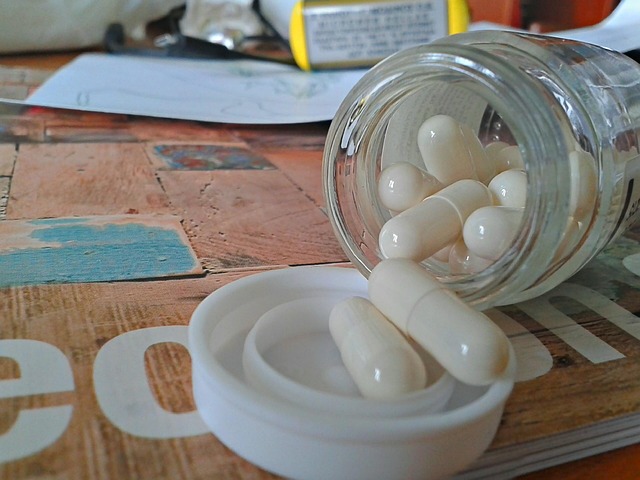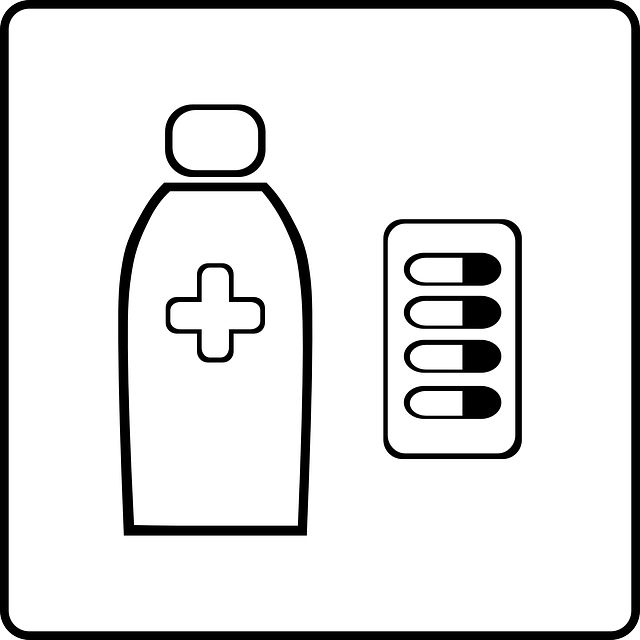Semaglutide medication is revolutionizing personalized diabetes treatment plans by mimicking natural hormones to stimulate insulin release and suppress glucagon, leading to superior blood sugar control and significant weight loss. These tailored plans consider genetics, lifestyle, and health history, allowing healthcare professionals to finely tune care and reduce hypoglycemia risks. Integrating semaglutide into comprehensive treatments enhances patient compliance and overall well-being, making diabetes management more effective and user-friendly. Continuous monitoring and adjustments are crucial for optimal glycemic control.
Personalized diabetes treatment plans are revolutionizing how we manage this chronic condition. In this comprehensive guide, we explore the crucial role of semaglutide medication in diabetes management. From understanding personalized care’s holistic approach to the specific benefits of semaglutide and its impact on blood sugar control, this article delves into tailored therapy for optimal patient outcomes. Discover how combining semaglutide with lifestyle changes and continuous monitoring transforms lives through individualized treatment plans.
Understanding Personalized Diabetes Treatment: A Comprehensive Approach

Personalized diabetes treatment plans are revolutionizing the way we manage this chronic condition. Unlike one-size-fits-all approaches, these tailored strategies consider an individual’s unique genetic makeup, lifestyle, and health history to deliver optimal care. By embracing a comprehensive approach, healthcare professionals can offer more effective solutions, ultimately improving patient outcomes.
One key component of personalized diabetes management is the integration of semaglutide medication. As a glucagon-like peptide-1 (GLP-1) receptor agonist, semaglutide helps regulate blood sugar levels by mimicking the body’s natural hormones. This innovative treatment can be finely tuned to each patient’s needs, offering precise control and potentially reducing the risk of hypoglycemia. Such a tailored approach ensures that diabetes management becomes more user-friendly and accessible, fostering better patient compliance and overall health.
The Role of Semaglutide Medication in Diabetes Management

Semaglutide medication plays a pivotal role in personalized diabetes treatment plans, offering significant benefits for both type 2 diabetes (T2D) and certain individuals with type 1 diabetes (T1D). As a glucagon-like peptide-1 (GLP-1) receptor agonist, semaglutide mimics the action of a natural hormone that stimulates insulin release and suppresses glucagon in a glucose-dependent manner. This dual action helps to lower blood sugar levels effectively while minimizing hypoglycemic events.
The use of semaglutide medication is backed by robust clinical evidence. In numerous studies, it has demonstrated superior glycemic control compared to placebo or other standard treatments. Additionally, semaglutide can lead to weight loss, a benefit that goes beyond blood sugar management. This dual action makes semaglutide a versatile tool in diabetes management, catering to the diverse needs of patients and contributing to improved quality of life.
Individualized Therapy: Unlocking the Benefits for Each Patient

Personalized diabetes treatment plans recognize that each patient is unique, with varying needs and responses to therapies. This approach shifts the focus from a one-size-fits-all strategy to tailored interventions, aiming to unlock optimal blood sugar control for every individual. By considering factors like lifestyle, genetics, and specific health markers, healthcare providers can design treatment plans that not only manage diabetes effectively but also improve patients’ overall well-being.
One promising tool in individualized therapy is semaglutide medication. This injectable drug has shown remarkable efficacy in reducing HbA1c levels and promoting weight loss, making it a valuable asset in personalized diabetes care. Its ability to mimic the effects of a natural hormone, GLP-1, allows for improved insulin secretion and reduced glucose production, contributing to better blood sugar management. Semaglutide’s benefits can be particularly significant when integrated into a comprehensive treatment plan, considering individual patients’ unique characteristics and preferences.
How Semaglutide Works and Its Impact on Blood Sugar Control

Semaglutide is a medication that has made significant waves in personalized diabetes treatment plans. It works by mimicking the effects of a natural hormone, GLP-1, which stimulates insulin production and suppresses glucagon release, leading to improved blood sugar control. This dual action helps lower both fasting and post-meal glucose levels, making it particularly effective for type 2 diabetes management.
The impact of semaglutide on blood sugar control is substantial. Clinical trials have shown that it can lead to significant reductions in HbA1c (a measure of long-term blood sugar control) compared to placebo or other standard treatments. Moreover, semaglutide has been linked to weight loss, further enhancing its value as a comprehensive diabetes management tool. Its ability to improve insulin sensitivity and promote better metabolic health makes it a valuable asset in tailored treatment strategies for individuals with diabetes.
Tailoring Dosage and Administration for Optimal Results

In personalized diabetes treatment plans, tailoring the dosage and administration of semaglutide medication is paramount for achieving optimal results. Semaglutide, a glucagon-like peptide-1 (GLP-1) receptor agonist, offers significant benefits in blood sugar management when administered according to individual patient needs. Healthcare providers carefully consider factors such as the patient’s weight, metabolic control goals, and lifestyle to determine the most effective dose range.
Regular monitoring of A1C levels and other glycemic markers helps refine the treatment plan further. For instance, starting with a lower dosage and gradually increasing it under close supervision can minimize side effects while maximizing the medication’s beneficial effects on insulin secretion and glucose uptake. This personalized approach ensures that each patient receives the most suitable semaglutide therapy for their unique diabetes profile.
Combining Semaglutide with Lifestyle Changes for Holistic Care

In the personalized diabetes treatment landscape, combining pharmacological interventions like semaglutide medication with lifestyle modifications offers a holistic care approach. Semaglutide, a glucose-lowering drug, has shown significant efficacy in managing type 2 diabetes. However, its maximum benefits are often realized when paired with patient-centric lifestyle changes. Dietary adjustments, regular physical activity, and stress management techniques complement semaglutide’s action, creating a synergistic effect that goes beyond medication alone.
This dual strategy empowers patients to take an active role in their health. By embracing a balanced lifestyle, individuals can optimize blood sugar control, improve overall well-being, and reduce the risk of diabetes-related complications. Healthcare providers play a pivotal role in guiding patients through these changes, ensuring that both the body and mind are aligned in the fight against diabetes.
Monitoring and Adjusting the Treatment Plan Over Time

Personalized diabetes treatment plans require ongoing monitoring and adjustments, especially when incorporating novel medications like semaglutide. Regular blood sugar checks are crucial to gauging the plan’s effectiveness and identifying any necessary tweaks. This proactive approach ensures optimal glucose control, minimizing risks associated with both hyperglycemia and hypoglycemia.
Healthcare providers play a pivotal role in navigating these adjustments, working closely with patients to interpret results, discuss concerns, and make informed decisions. As treatment progresses, they may modify doses or even switch medications, such as transitioning from oral drugs to semaglutide injections, based on individual responses and evolving needs. This dynamic process is essential for achieving long-term diabetes management success.
Real-World Success Stories: Transforming Lives with Personalized Care

Personalized diabetes treatment plans are not just a concept but a reality that has transformed many lives. Real-world success stories highlight the impact of tailored care, especially when incorporating innovative medications like semaglutide. This medication has shown remarkable results in helping individuals manage their blood sugar levels effectively. By focusing on each patient’s unique needs and preferences, healthcare providers can offer solutions that go beyond standard treatments.
Many patients have experienced significant improvements in their overall health and well-being. For instance, some have achieved better glycemic control, leading to reduced risks of diabetes-related complications. These success stories serve as a powerful reminder that personalized medicine is not just a trend but a necessary approach to ensure optimal patient outcomes.
